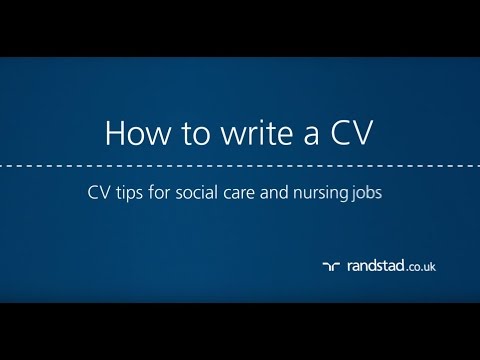<p>Finding your first position as a <a href="/jobs/s-social-care/ss-social-care/r-social-worker/">newly qualified social worker</a> can be a daunting and often stressful experience, and many candidates tend to worry about the application process and about whether their skills and experience meet the requirements.</p>
<p>So, if you’re newly qualified and want to increase your chances of getting an interview, here are a few things you might want to consider. Our top tips are:</p>
<ul>
<li>take your time over application forms</li>
<li>think about your written statement</li>
<li>make the most of your experience</li>
<li>show you care</li>
<li>don't give up</li>
</ul>
<h3>Social worker application tips.</h3>
<h5>Take your time over application forms. </h5>
<p>Most organisations who use application forms do so because they approach recruitment as a structured decision-making process. They score candidates against a set of criteria for the role and will shortlist the top applications for interviews. <br><br> So, when you’re presented with a job that requires filling out an application form, it’s very important to consider that the answers you give to the more general questions will be marked by a recruiter who is looking for well-structured evidence of skills and experience. <br><br> This means that the successful candidates will be the ones who take time and care to answer the questions. Leaving it to the last minute and rushing through means that you’ll only be successful by accident so look at the questions, make notes of some bullet points of your experience that covers the answers and then draft your answer. <br><br> It’s a good idea to give yourself several goes at an application form so don’t hesitate to take breaks and come back to something to reassess what you’ve written as you’ll usually spot holes, errors and spelling mistakes. This is particularly important for application forms that have strict word counts, as you’ll often find ways to squeeze more information in. </p>
<h5>Know how to tackle the written statement. </h5>
<p>If you’re about to tackle the written statement section of your application, it’s essential to bear in mind the following question “Why do you want to apply for this job, and what makes you the best person for the role?”</p>
<p>Remember that this section will ask you to showcase your strengths and apply them specifically to the job description so start by familiarising yourself with it and annotating if need be. Think about your experience and placements and make a note of anything that’s relevant to the job. Then try to match your notes to the job description, checking off each element of the description. <br><br> Once you’ve done that, you’re ready to tackle the written statement and tailor your experience to it. Remember that you don’t need to go on at length – a manager hiring for the position will be going through hundreds of CVs or application forms so you just need to succinctly demonstrate how you fit the bill.<br><br> Also, don’t forget to put your knowledge on the page by mentioning any legislation or legal processes that are either part of your skill set or the role requirements. </p>
<h5>Make the most of your experience. </h5>
<p>Placements are obviously vital to the learning process, and anyone taking on a NQSW will be interested to see how you made the most of your placements, but there are other elements of experience that can be just as persuasive. Voluntary work and pre-course experience are often fertile resources for your answers, and don’t think that they are somehow less valid – a great many roles include social work in some sense, even if they are not labelled as such. That also goes for jobs that were outside the sphere of social work as you’ll be surprised by how many transferable skills you can find from roles you might consider unrelated. <br><br>Our recruiters in the care sector, outline their top CV and application tips in the clip below:</p>
<h5>Show you care.</h5>
<p>Although demonstrating skills and experience are the core part of the recruitment process, don’t forget to show that your passion and enthusiasm are just as important, especially if you’re newly qualified. Use positive language and mention your motivations in your written statement when you can. By highlighting why you’re passionate about entering the sector, you might be able to present a unique and meaningful case for employment. </p>
<h5>Always be persistent.</h5>
<p>When you’re applying for your first role in social work, sometimes you can often go days or even weeks without getting a response. It’s therefore important to remember that rejection is a part of the process and learning how to deal with it will keep you motivated. Try to remember that because of the competitive nature of the jobs market, many decent candidates are unsuccessful and that you just need to keep going to find a good job. Be methodical and don’t pin your hopes too much on a single position – set yourself the target of applying for three or four jobs every day, and eventually your hard work will be rewarded.</p>





